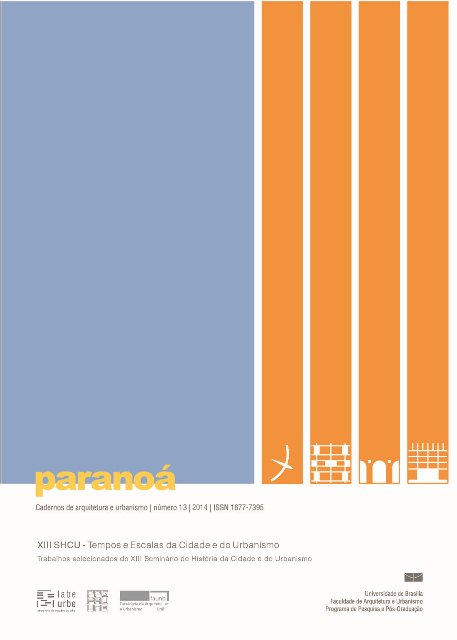A urbanização das “Ordenações do Reino”
DOI:
https://doi.org/10.18830/issn.1679-0944.n13.2014.12043Keywords:
Ordinances, Urban regulations, Brazilian colonial urbanisticsAbstract
For over 300 years, throughout Brazil’s colonial period ”“ into the Empire and up to the Republic ”“, Ordenações do Reino de Portugal [Ordinances of the Kingdom of Portugal] made up the normative foundation of a sophisticated administrative and legal system of territorial occupation and control. These books, which were successively reprinted and widely distributed by agents of the Crown, devoted several sections to buildings and to their relation with public space and with other buildings. The arrangement of openings ”“ privacy, view, and lighting ”“, on-street constructions, walls separating neighbours, rainwater, and house sharing were some of the topics supervised by the almotacé, a public agent of the local councils. Such regular principles, together with their widespread diffusion, may have played a role in establishing the now visible uniformity of Portuguese-Brazilian cities. This paper presents a short analysis of the edition, diffusion, and nature of some of these values, aiming to stimulate further investigation on the extent of that influence.
Downloads
Downloads
Published
How to Cite
Issue
Section
License
Autores que publicam nesta revista concordam com os seguintes termos:
- Autores mantém os direitos autorais e concedem à revista o direito de primeira publicação, com o trabalho simultaneamente licenciado sob a Licença Creative Commons Attribution que permite o compartilhamento do trabalho com reconhecimento da autoria e publicação inicial nesta revista. http://creativecommons.org/licenses/by/4.0
- Autores têm autorização para assumir contratos adicionais separadamente, para distribuição não-exclusiva da versão do trabalho publicada nesta revista (ex.: publicar em repositório institucional ou como capítulo de livro), com reconhecimento de autoria e publicação inicial nesta revista.
- Autores têm permissão e são estimulados a publicar e distribuir seu trabalho online (ex.: em repositórios institucionais ou na sua página pessoal) a qualquer ponto antes ou durante o processo editorial, já que isso pode gerar alterações produtivas, bem como aumentar o impacto e a citação do trabalho publicado (Veja O Efeito do Acesso Livre).















